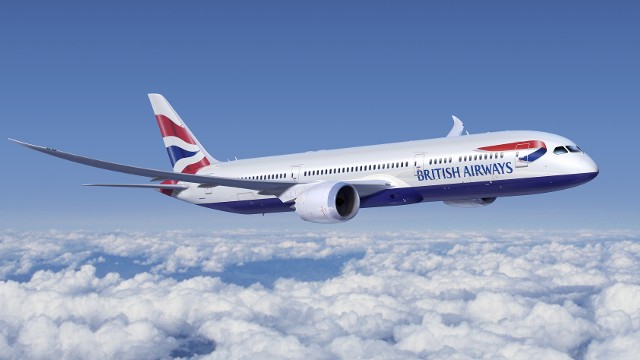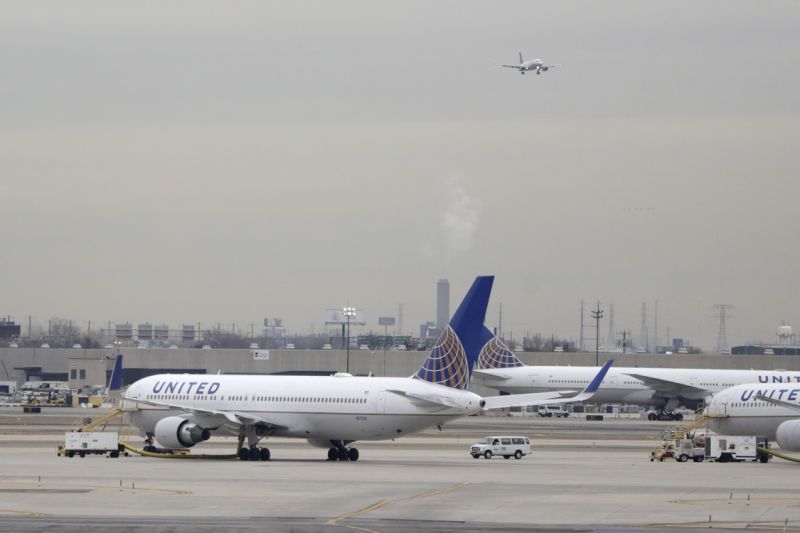
Air travellers and the media are of the view that British Airways service is declining, in comparison with its competitors, the Middle East airlines. Despite the perceived decline in service, anxious customers of the European mega carrier are hoping that the airline will bounce back to its old winning ways.
British Airways is a premier airline that has built invaluable goodwill globally and a pride to world’s airspace, as it connects cities from different countries in different regions of the world.
In Nigeria, flying British Airways gives one status, which is the high status symbol. There are rich families in Nigeria that have been flying BA for decades since the 1960s because of the airline’s good records and premium service, coupled with the fact that the United Kingdom (UK) is second home to many Nigerians.
There was a time the airline passengers can agree to this: “The British Airways Experience is more than a flight. It’s about making every single journey as special and original as you are, whatever your reason to travel. We’re always here to help you feel relaxed and secure from the airport to boarding and beyond,” but these days some travellers have expressed misgivings about its service.
Mail online (https://www.dailymail.co.uk) published a report written by Alex Brummer on November 15, 2024, indicating that British Airways’ service is declining and alleged, “It has the worst delays of any Heathrow airline. Complaints about the decline of its food are legion” and wondered if the iconic British carrier would ever be world favourite airline again.
The report also stated: “The deterioration in BA service standards on transatlantic travel, where it is the dominant carrier and earns a large chunk of its profits, is shocking. It’s not good for Britain’s reputation as the hub of global finance and can only benefit American rivals United and Delta, which offer cheaper fares and have upped their game.”
The Genesis
A media consultant who has worked for British Airways in Nigeria, Simon Tumba, told THISDAY that COVID-19 had adverse effect on many major airlines in Europe, including British Airways. And this is followed by competition by the Middle East carriers like Emirates and Qatar Airways, owned by countries with deep pocket that operate state of the art equipment with enviable in-flight service.
“COVID-19 became a harbinger to the poor performance of most businesses and the post-COVID-19 era was also a huge challenge to most carriers. BA has its challenges with maintaining Heathrow as its hub and competing with low cost carriers in Europe, which encroached its market share. Remember the tag line, which was one time the World’s most favourite airline, has to be abandoned over a decade ago.
“However, competing with the Middle East carriers in the premium cabin has become a major issue with BA and other carriers in Europe, including the US. BA will surely find it tough to lower the cost per seat (considering its ageing fleet) and upgrade their premium cabins and the perks offered by its competitors, considering the economies of scale enjoyed by the Middle Eastern carriers and the young fleet at their disposal,” he said.
The Decline
Reviewing the performance of British Airways over the years, one of the airline’s regular customers and the Founder and Managing Director of Travel Lab Nigeria Limited, Mrs. Shalom Asuquo, confirmed that the mega European’s carrier performance has degenerated.
She gave details about the literal inversion of the gulf states in the UK, investing significantly in different sectors of the economy and almost eroding the British Airways market.
Asuquo, who has been flying BA for decades said: “As someone who has flown extensively with BA and other global airlines, I agree: the decline is apparent. There was a time I joined the BA wine tasting club. On one of my trips to Nigeria, I had a carton of 12 bottles of assorted wines delivered to my door in London and I flew to Nigeria with it.
“In today’s fiercely competitive aviation industry, Middle Eastern carriers like Emirates and Qatar Airways have set new benchmarks for excellence in service and loyalty programmes. Unfortunately, BA seems to be struggling to keep pace, and for many passengers, including myself, the frustration has reached a tipping point.
She said that BA’s service quality once stood as a gold standard, but it now feels lackluster compared to the innovative offerings of Emirates and Qatar Airways, remarking that BA’s Economy and Premium Economy cabins, in particular, have been criticized for cramped seating, outdated interiors, and uninspired inflight dining. Even its Business Class (Club World), despite recent upgrades, lags behind competitors in terms of comfort and innovation.”
“Contrast this with Emirates, which redefined luxury air travel with its A380 flagship aircraft, featuring onboard lounges and shower spas. Emirates’ Economy Class is leagues ahead, offering spacious seats, gourmet meals, and an award-winning inflight entertainment system. Similarly, Qatar Airways has set the bar with its Qsuite, a Business Class product that offers unparalleled privacy, comfort, and dining experiences.
“When compared, BA feels like it’s still clinging to its legacy rather than evolving with customer expectations. The consistency and attention to detail offered by Emirates and Qatar Airways make British Airways feel outdated, even on its flagship London routes,” she said.
Loyalty Programme
Asuquo described BA’s loyalty programme as a tale of frustration and observed that BA’s Executive Club, built around its Avios points system, remained one of the most established airline loyalty programs globally. However, for many customers—especially those in Nigeria—it’s a source of endless frustration. She explained that redeeming Avios points often feels like navigating a maze of restrictions, with limited availability, high taxes, and hefty fees that often negate the value of “free” tickets.
“Take my case: despite accumulating over 200,000 points both in executive club and on business, I found it impossible to redeem them for a flight to London. Instead, I opted to fly with another airline, despite my loyalty to BA. This is a common grievance among Nigerian customers who feel that BA doesn’t prioritize their needs or offer flexibility in redemptions.
“On the other hand, Emirates Skywards and Qatar Airways’ Privilege Club shine in this department. Emirates’ Skywards program makes it easy to redeem points for flights, upgrades, and even exclusive experiences. Qatar Airways’ Privilege Club, now integrated with Avios, offers seamless point usage across its routes, with minimal restrictions. Both programs emphasize customer convenience, something BA has yet to master,” she said.
Looking at it as a Nigerian, Asuquo said that British Airways had long been a preferred airline for Nigerian travelers, particularly those flying to London for business or leisure.
“However, the airline’s waning service standards and loyalty program inefficiencies have led many to reconsider. In contrast, Emirates and Qatar Airways have aggressively captured market share in Nigeria by offering superior customer experiences, including better inflight service, modern aircraft, and accessible loyalty rewards.BA’s inability to adapt to this competitive environment risks alienating a key market like Nigeria, where discerning travelers demand value for their money and loyalty,” she stated.
Redemption
She said BA can bounce back because it still benefits from its strong network and global recognition, but those alone won’t keep it afloat in the premium airline space. To regain its status, BA must make bold changes, which include investing in modernisation: update cabins, especially in Economy and Premium Economy, to match or surpass competitors; enhance service standards;focus on delivering consistent and exceptional service across all classes; reimagine the loyalty programme;make Avios redemptions more accessible, transparent, and rewarding for international customers, particularly in markets like Nigeria and listen to customers and dadress regional concerns and prioritize customer satisfaction in key markets.
“British Airways’ legacy as a premium airline is undeniable, but in today’s dynamic aviation market, legacy alone won’t cut it. While Emirates and Qatar Airways continue to innovate and raise the bar, BA risks losing loyal customers like myself who expect more for their money and loyalty.BA’s path forward requires bold decisions and a renewed focus on excellence. Until then, I, like many others, will be looking elsewhere for the premium experience we once trusted BA to deliver,” Asuquo concluded.
However, the Group Managing Director and CEO of Finchglow Holdings Limited and former President, National Association of Nigeria Travel Agencies (NANTA), Bankole Bernard, told THISDAY that BA’s service was not diminishing but that “people are just reacting negatively over everything. They see that the cost of ticket has skyrocketed and they become critical.”
He said that contrary to what many Nigerians believed that BA deploys old equipment on the Nigerian routes, he disclosed that fleet or aircraft allocation could not be determined by a particular destination but by a technical decision taken for safe and successful flight service.
Bankole also noted that journalism dwells on negativities, including demarketing businesses and explained that globally there is inflation, which has pushed up the cost of everything and one organization cannot be held responsible for that.
“I don’t believe that BA has reduced its standard. It is just a negative reaction by some people,” he said.
In August, UK’s The Telegraph (www.telegraph.co.uk) reported that China has spent billions expanding into Africa under its Belt and Road initiative, aimed at boosting growth and Beijing’s geopolitical power.
“Now, a very different battle for control is raging in the skies above Africa. Giant airlines from the Middle East are vying for dominance in the world’s last great untapped aviation market.

“The dogfight involves three super-carriers that have already transformed the face of global aviation: Emirates, Qatar Airways and Turkish Airlines.
“Not content with snatching lucrative long-haul traffic from the likes of British Airways and American Airlines, the three companies have begun carving up an African market that’s expected to become the airline industry’s fastest-growing in coming decades,” the paper reported.
One can glean at Middle East carriers slowly taking over the African air travel market and stiffly competing in the European airspace, as Africa nations free themselves from the colonial control that kept them supine for decades. But in Europe and America, state of the art equipment and optimum service will force European and American carriers concede a large segment of their market to the Middle East carriers.
The Catch Up Game
CNN reported on November 18 that British Airways was hit with a technical failure for a few hours on Monday, which appeared to have caused some delays and disruption to its flights across Europe.
“After reports emerged on social mediaof flight delays, and the flag carrier’s website was down for more than an hour, a British Airways spokesperson said the airline experienced a ‘technical issue affecting some of our systems that led to delays.
“Our teams worked hard to resolve an issue we experienced for a short time earlier this evening. We’ve apologised to customers for delays to their flights and ensured they were able to reach their destinations as planned,” a British Airways spokesperson said in a statement, as quoted by CNN.
The airline is beset with these and many other challenges, which erodes its competitiveness with the Middle East carriers; but there is hope that from its wealth of experience, British Airways would look inwards and adopt a strategy that would put it back on track.







